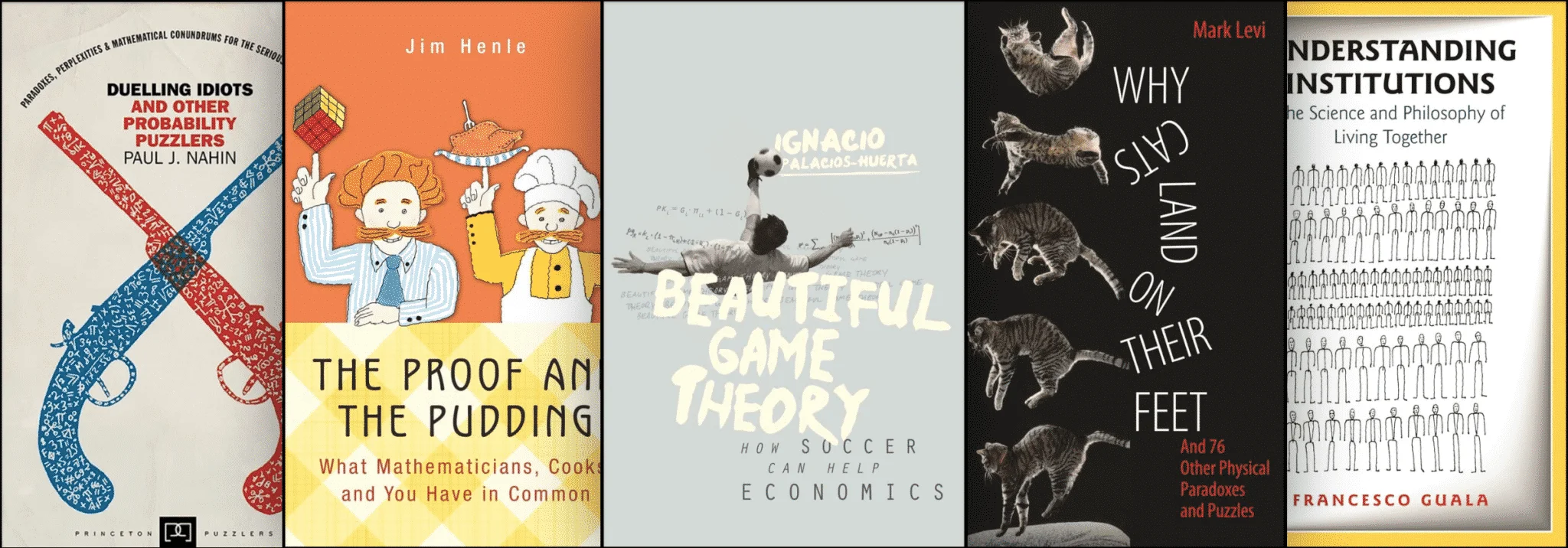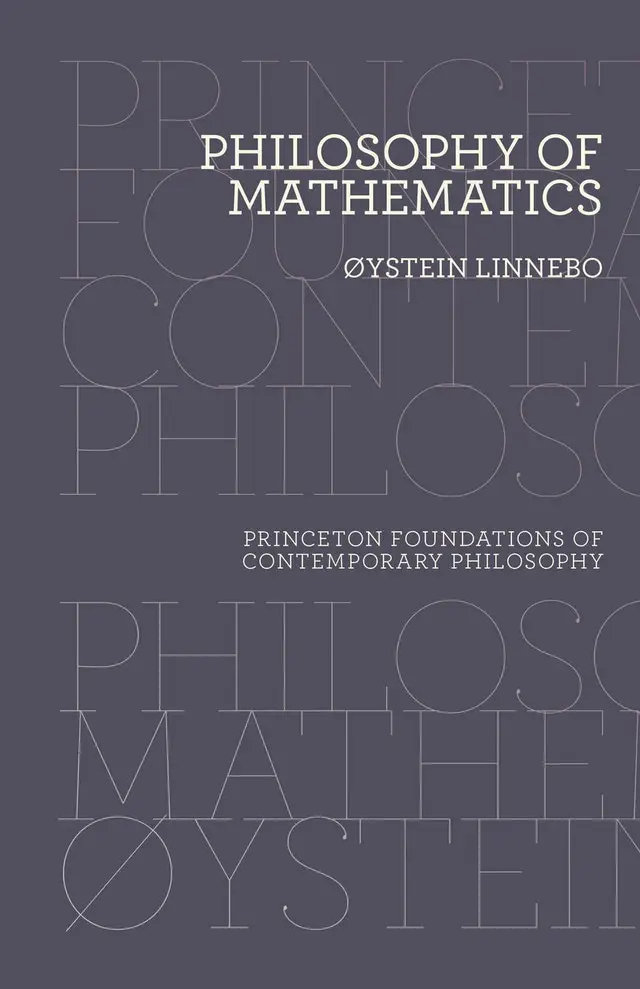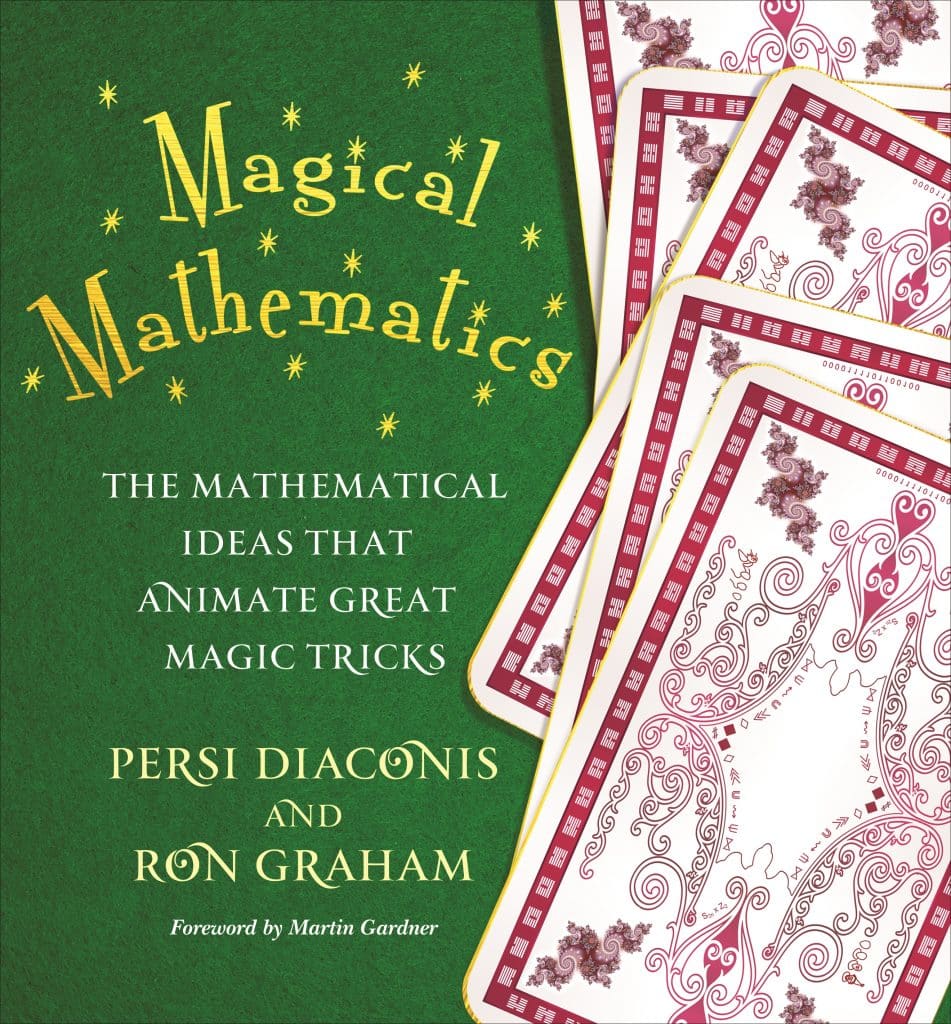Books are a kind of catalyst for the human brain to function. And Princeton University Press has been publishing scholarly math books since 1905. They bring influential voices and ideas to the world stage through their academic scholarship, advancing scholarly knowledge, and promoting human conversation.
They embrace the highest standards of scholarship, inclusivity, and diversity in their publishing. In keeping with Princeton University’s commitment to serving the nation and the world, they publish for scholars, students, and engaged readers everywhere. Although leading experts in the academic world write their books, they are accessible to the general reader.
Is Princeton University Press part of Princeton University?
The Princeton University Press is a charitable publishing organization established in 1905 and maintains close ties to Princeton University. Through their academic study, members of the press bring prominent voices and ideas to the forefront of global discourse. In so doing, they push the boundaries of what is known in the academic world and foster human interaction.
How does a university press work?
A university press is a type of academic publishing house specializing in publishing scholarly journals and monographs. Most university presses are non-profit entities that are fundamental to large research universities. They only publish research that has been evaluated and deemed worthy of publication by experts in the relevant subject.
Princeton University Press team is also very enthusiastic about audiobooks these days. Every time they publish a new math book, they also come with an audiobook version which is a perfect opportunity for a long commute! If you have never tried an audiobook so far, you should try Amazon’s Audible for free! You will love it!
Below, you will see more than 40 elegant math books from Princeton University Press. Any of them will be a great choice for lifelong learners like you!
Mathematics is a fascinating subject that can be applied in solving problems in various industries, including sports. Mathletics: How Gamblers, Managers, and Sports Enthusiasts Use Mathematics in Baseball, Basketball, and Football by Wayne L. Winston reveals how mathematics is used in evaluating players and improving team performance. In this book review, you will delve into the fascinating world of sports and mathematics, and learn more about the practical skills that can enhance our understanding and enjoyment of favorite sports.
Mathletics is a comprehensive guide that provides insights into the mathematical methods used by top coaches and managers in evaluating players and team performance. This book features new data, new players and teams, and new chapters on soccer, e-sports, golf, volleyball, and gambling Calcuttas. Mathletics has detailed chapters on various statistical techniques such as Bayesian inference and ridge regression, providing the reader with an in-depth understanding of each concept.
One of the most intriguing revelations in Mathletics is why baseball teams should almost never bunt. The book explains that bunting decreases a team’s run-scoring potential and reduces the number of outs they have available to score runs. Additionally, football overtime systems have been debatable for some time now with some teams having a higher chance of winning purely by winning a coin toss. Mathletics provides an explanation of why overtime systems are unfair.
Furthermore, Mathletics provides the reader with a better understanding of the NBA’s best player. Many people believe that the best player should possess high points, rebounds, and assists to his name. However, Mathletics points out that basketball is a team sport, and individual statistics alone may not help identify the best player. The book argues that using a combination of individual statistics and team performance is the most appropriate way to identify the best player in the league.
Finally, Mathletics has an informative chapter on gambling Calcuttas. These are auctions commonly used in sports betting, where players’ available bids receive a share of the proceeds from the overall auction pool. With the help of mathematical models, participants can determine their optimal bids that will earn them maximal expected value.
In Mathletics, Wayne L. Winston provides readers with valuable insights into how different mathematical methods are used in evaluating players and team performance. The book is not only informative but also entertaining for both sports enthusiasts and mathematical minds. It shows how a sound comprehension of mathematics within sports can provide a competitive edge by giving individuals a data-driven approach. The author illustrates the importance of statistics in sports and the significance of using them to gain an edge in sports betting. Mathletics is a must-read for anyone who wants to learn how to use mathematics to enjoy their favorite sports more.
In the realm of mathematics, calculus holds a special place as the foundation upon which countless scientific and engineering principles are built. Steven Strogatz’s The Calculus of Friendship offers an intimate glimpse into not just the mathematical world but also the profound human connections that can be forged through a shared passion for calculus. This book captures the essence of a unique relationship between a teacher and his student, chronicled over more than thirty years through letters exchanging their love for calculus.
The Calculus of Friendship narrates an extraordinary bond between a teacher and a student, sustained through decades of correspondence. Their relationship is rooted deeply in their mutual love for calculus, making it more than just a branch of mathematics—it becomes a sanctuary, a game, and a constant in their lives filled with change.
The teacher transitions from the peak of his career to retirement, experiences the highs of international whitewater kayaking, and faces the tragic loss of a son. On the other hand, the student evolves from a high school math whiz to an Ivy League professor, navigates the sudden death of a parent, and deals with the failure of a marriage. Amidst these life-altering events, they find solace and stability in calculus—until a moment when even calculus is no longer enough.
The Calculus of Friendship is much more than an exploration of mathematical concepts. It is an exploration of change, transformation, and the shifting dynamics of a mentor-mentee relationship. Strogatz, a renowned teacher and communicator of mathematics, crafts a narrative that is warm, intimate, and deeply moving. The book brilliantly interweaves the most inspiring ideas of calculus, differential equations, and chaos theory with metaphors, images, and anecdotes that make these complex topics accessible to all readers.
For anyone whose life has been touched by a mentor, The Calculus of Friendship will be an unforgettable and enlightening read. It showcases how mathematics, specifically calculus, can serve as a refuge and a constant amidst life’s turbulent changes. Strogatz’s expert storytelling and deep understanding of both mathematics and human relationships make this book a must-read for math enthusiasts and anyone interested in the profound impact of mentorship.
In a surprising turn of events, my journey into the world of mechanical engineering took me to a place I never imagined. Working on innovative automotive pushrods brought me face-to-face with the complexities of geometry and the importance of precision in design. Little did I know, measuring roundness and concentricity can be extremely challenging without sacrificing the pushrods themselves!
While “How Round Is Your Circle?: Where Engineering and Mathematics Meet” may not directly address this dilemma, it certainly delves into intriguing related questions. How does one draw a straight line? How can you verify the roundness of a circle? Surprisingly, these seemingly trivial problems play a vital role in engineering design. In How Round Is Your Circle, the authors aim to show mathematicians the significance of practical engineering problems and how small changes can have a big impact.
The authors’ fascination with analog scientific instruments is evident throughout the book. They include a range of physical models and provide instructions on how to make and use them. From hatchet planimeters crafted from coat hangers and washers to ingenious linkages, these models offer a hands-on exploration of mathematical concepts.
While How Round Is Your Circle? lacks a cohesive storyline, it is a treasure trove of captivating content for those who share the authors’ passion. It covers geometry, trigonometry, and elementary calculus, offering valuable examples and applications that can be applied in educational settings. However, it falls short of truly exploring the vast intersection of engineering and mathematics.
In “How Round Is Your Circle?“, the authors offer a glimpse into an intriguing world where precision and innovative thinking collide. While it may not fully live up to its title, it certainly sparks curiosity and offers a thought-provoking exploration of the meeting point between two fascinating fields.
Discover the captivating world of the philosophy of mathematics with Øystein Linnebo‘s groundbreaking book review. As I taught a special topics course on the history of mathematics, I couldn’t help but delve into the deep questions surrounding the nature of mathematics itself. What truly defines mathematics? Do mathematical objects like sets and numbers exist, and if so, in what form?
To my surprise, these philosophical questions had rarely been considered by my students. It was clear that these topics were not commonly explored in mathematics courses. Most students were preoccupied with grasping complex mathematical concepts, leaving little room for philosophical musings.
Given the scarcity of undergraduate-level textbooks on the philosophy of mathematics, Linnebo’s book is a breath of fresh air. It surpasses other introductory texts in sophistication while still being accessible to those new to the subject. Familiarity with philosophical reasoning and writing, as well as a background in logic, will enhance the reading experience.
Unlike other books on the subject, Linnebo’s comprehensive text goes beyond exploring the foundational schools of thought in the philosophy of mathematics. While formalism, logicism, and intuitionism are covered, Philosophy of Mathematics also delves into contemporary issues that have emerged in recent decades. It strikes a perfect balance between the historical and the modern, making it a valuable resource for anyone interested in the philosophy of mathematics.
Join Øystein Linnebo on a journey through the history, concepts, and debates that shape our understanding of mathematics. Whether you’re a mathematics major or a curious mind, this book will challenge your perception of the subject and leave you eager for more.
“Professor Augustus De Morgan penned a letter to a colleague on October 23, 1852, without realizing that he was beginning one of the most famous mathematical puzzles in history, one that would stump thousands of people for more than a century. The incredible tale of how the “map problem” was resolved is told here.
What is the least amount of colors required to fill in any map (actual or imagined) so that neighboring county are always colored differently? Is the issue raised in the letter from a former student? Cartographers found little need to restrict the number of colors they utilized. Therefore this seemingly straightforward question didn’t hold much interest to them. The Bishop of London, Lewis Carroll, a botanist, an obsessive golfer, a man who sets his watch just once a year, a California traffic cop, and a newlywed who spent his honeymoon coloring maps were among the people who got into a frenzy over the problem. Mathematicians painted maps on doughnuts and horseshoes, toyed with patterned soccer balls, and worked on the huge rhombicuboctahedron as they searched for the answer.
Before the outcome was determined, it would take more than a century (and countless colorful maps). Even though challenging problems persisted, the complex solution—which required no less than 1,200 hours of computer time—was received with equal astonishment and admiration.
Robin Wilson describes how an apparently unimportant subject stumped brilliant brains and inspired fascinating mathematics with a wide range of applications. She does this by clearly and elegantly explaining both the problem and the proof. This is the amusing tale of people who tried and failed to demonstrate that any map can be colored using only four colors.
Numerous color drawings can be found in this new edition. A new prologue by Ian Stewart discussing the significance of the map problem and how it was resolved is also included.”
“The secrets to easy-to-do card tricks are revealed in Magical Mathematics and the complex mathematical concepts that underlie them and will astonish even the most seasoned conjuror. Each trick comes with simple, step-by-step instructions from Persi Diaconis and Ron Graham, who also offer advice on how to set up the effect and interact with the audience while performing it. Each card trick teaches a new mathematical concept, and altering the tricks brings readers right up to the cutting edge of current mathematical understanding.
The eccentric and talented creators of mathematical magic are told tales and the best tricks by Diaconis and Graham. The mathematics of card shuffling is used in the book to reveal ancient gambling techniques, and it also explains the three-card Monte gambling con, one of the most popular street gambling scams.”
Discover the timeless wisdom of George Polya’s How to Solve It, a must-read for anyone interested in mathematics education. Despite its slightly clumsy writing due to Polya being a mathematician and not a native English speaker, this book offers invaluable insights into problem-solving that transcends the realm of mathematics and can be applied to any field.
Polya’s four-step approach to problem-solving is simple yet profound: understanding the problem, devising a plan, executing the plan, and reflecting on the solution. These steps are universally applicable and can be utilized for both basic and complex problems, making them essential for learning and growth. While different writers have made their own revisions to these steps, the core principles remain unchanged.
One of the highlights of this book is its enduring relevance. Not only can the general framework of Polya’s heuristic be applied to various situations, but the “A Short Dictionary of Heuristic” section offers a plethora of valuable insights. Each entry provides a concise essay on different aspects of problem-solving, shedding light on its nature and history. For instance, the distinction between “Problems to Solve” and “Problems to Prove” is particularly eye-opening and encourages deeper understanding.
With its enduring wisdom and practical resources, How to Solve It is a book that deserves a place on every educator’s shelf. It is a true classic in the field of educational literature that can be revisited time and time again for guidance and inspiration.
“Infinity, as it relates to mathematics and art, is examined in the book To Infinity and Beyond. Eli Maor investigates the function of infinity and its cultural effects on the humanities and sciences. From the “horror Infiniti” of the Greeks to the works of M. C. Escher; from the ornamental designs of the Muslims to the sage Giordano Bruno, whose belief in an infinite universe led to his death at the hands of the Inquisition, he invokes the profound intellectual influence the infinite has exercised on the human mind. The book mostly discusses the mathematician’s obsession with infinity, which is a combination of intrigue and perplexity.
“
The concept of chance was once a mystery, but in the sixteenth and seventeenth centuries, gamblers and mathematicians transformed it into the field of probability, paving the way for a string of innovations that enabled or revolutionized countless industries, ranging from gambling to mathematics to statistics, economics, and finance to physics and computer science. This book discusses ten brilliant theories about chance, along with the intellectuals who produced them. Ten Great Ideas about Chance is sure to be a favorite with everyone who wants to comprehend the mysteries of probability and how they were found, complete with a brief probability refresher.
“Lewis Carroll popularized logic puzzles in the late nineteenth century and have been popular ever since. Games like Sudoku and Mastermind are entertaining and captivating pastimes, but they also share a strong mathematical logic and merit serious intellectual investigation. Games for Your Mind lets you test your skills against a range of challenges while exploring the past and present of logic games.
Jason Rosenhouse begins this educational and amusing book by introducing readers to logic and logic puzzles before going on to discuss the fascinating history of these puzzles. He demonstrates how Carroll’s puzzles inspired his scholarly logic work and presented Aristotelian reasoning as a game for kids. He describes how Raymond Smullyan, another pioneer of logic games, used age-old games about liars and truth-tellers to demonstrate Kurt Gödel’s theorems and shed light on important issues in mathematical logic. Then, using nonclassical logic, which is currently used in computer science and automated reasoning to manipulate sizable and occasionally contradictory amounts of data, Rosenhouse offers a fresh outlook on the future of logic games.
This vibrant and interesting book collects many of the most brilliant puzzles ever created, including the “Hardest Logic Puzzle Ever,” meta puzzles, paradoxes, and the logic puzzles in detective fiction. It offers a multitude of sample riddles ranging from easy to extremely difficult.”





















